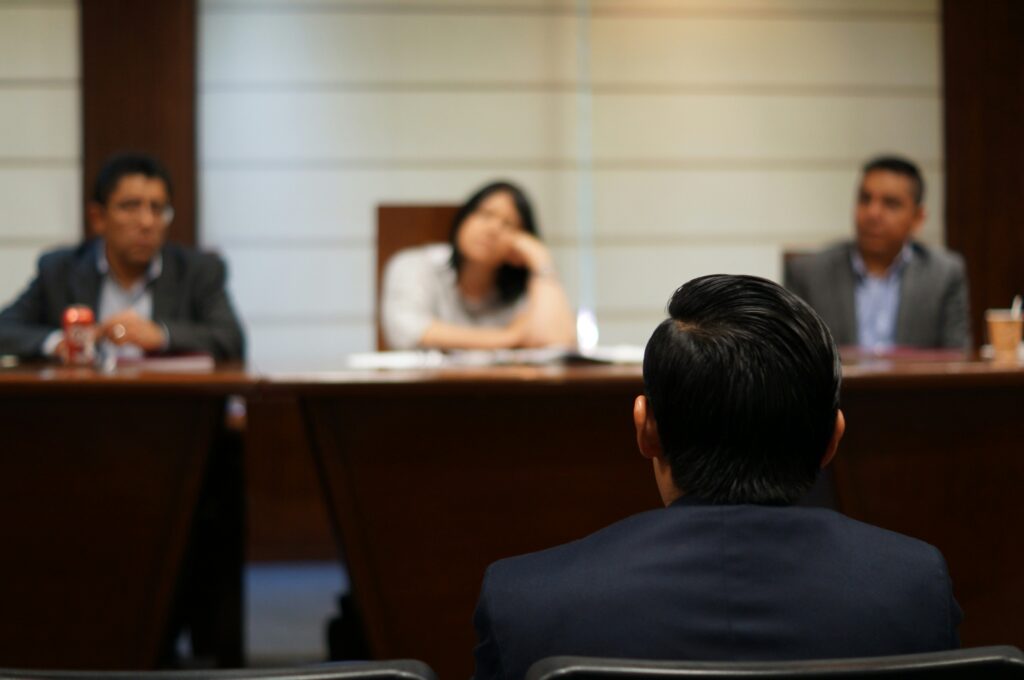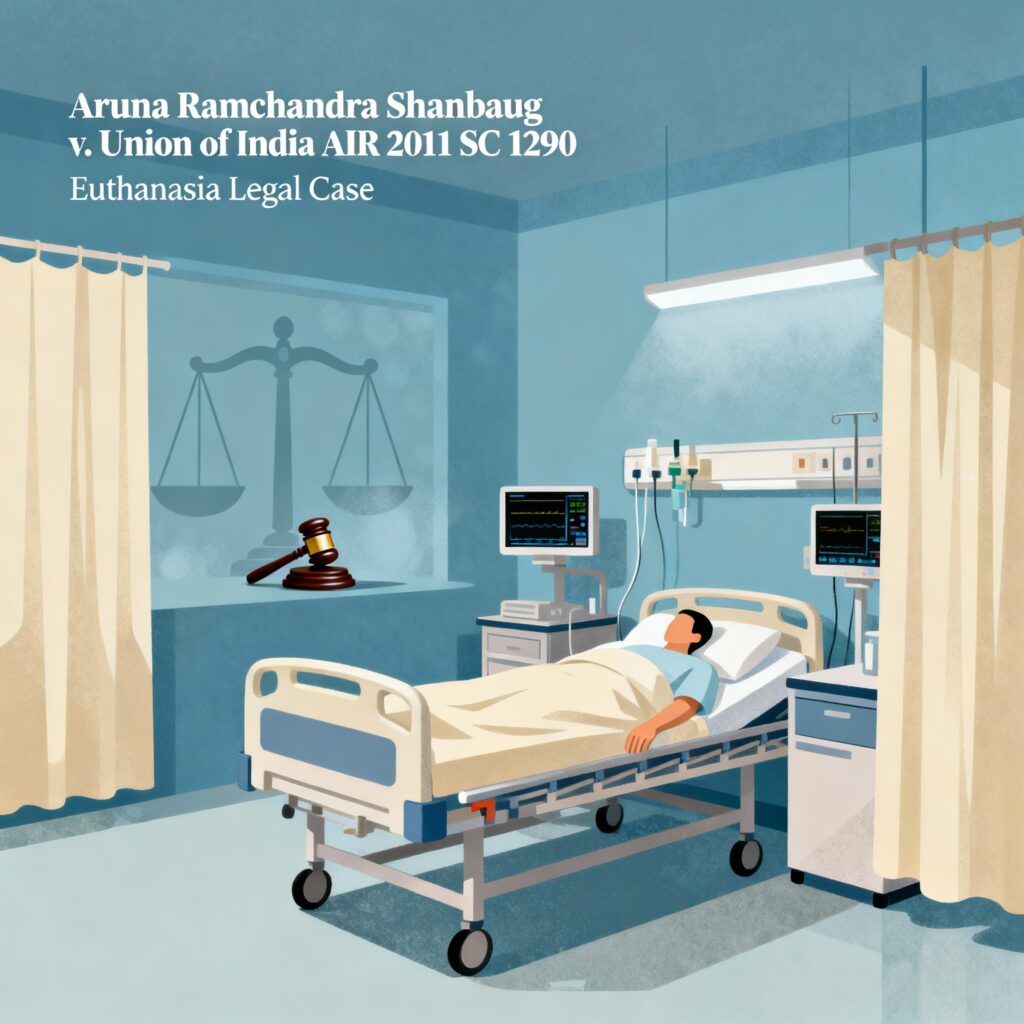Published On: 15th January, 2025
Authored by: Roushan Kumar Ojha
Mangalayatan University
Title of the case- Shayara Bano v.Union of India Citation – AIR 2017 9 SCC 1 (SC)
Name of the Court –The Supreme Court of India
Bench- Justice Jagdish Singh Khehar, Justice S. Abdul Nazeer, Justice Rohinton Fali Nariman, Justice S. Abdul Nazeer, Justice Uday Lalit, and Justice K.M. Joseph constituted the Bench.
Date of Judgement – 22nd August 2017
Name of appellant
- Shayara bano and others
Name of respondent
- Union of India and All India Muslim Personal Board and Rizwan Ahamed
Fact of the Case
There is a girl named Shayara Bano who is married to Rizwan Ahamed. She got divorced after 15 years of her marriage, her husband gave her talaq by way of talaq-e-bidat also known as triple talaq without giving any reasonable reason. So she filed a writ petition in the Supreme Court to challenge the constitutionality of triple talaq, nikah halala, and the practice of polygamy in Muslims on the ground that they violate the fundamental rights of Muslim women under articles 14,15,21 and 25. Some women’s rights organizations such as BEBAK and Bhartiya Mahila Muslim Andolan supported her in it. However, the All India Muslim Personal Law Board opposed it and argued that Islam is not codified it does not come under the ambit of judicial review and divorce comes under religious practice so it is protected by Article 25 of the Indian constitution.
The Supreme Court of India accepted the petition and formed a constitutional bench of 5 judges . The bench gave its final verdict on 22nd august 2017 on the triple talaq constitutionality.
Issue involved
- Whether triple talaq violates the fundamental right of women given under the Indian constitution and is unconstitutional
- The question is whether talaq-e-bidat (triple talaq) is considered an essential practice within Muslim law and is safeguarded by Article 25 of the Indian Constitution.
Arguments from the side of petitioners
Mr.AMIT CHADHA, who represents the case from the petitioner’s side said there that triple talaq was never recognized by Shariat Application Act 1937 and it is also not encouraged by the prophet Mohamad.This type of
Talaq only emerged by wrong interpretation and custom and there is no stand in Quran for this. He also
mentioned some cases in which questions were raised regarding these forms of talaq like Sahim ara vs state of Uttar Pradesh in which the court gave the ground for valid talaq. He said that the court should ban this type of practice in talaq because it violates articles 14 and 156 of the Indian constitution and if the court banned this the the Dissolution of Muslim Marriage Act 1939 would apply equally to the whole community irrespective of their gender.
Argument from the side of the respondent
The representatives included Mr. Kapil Sibal, who contended that the Shariat Act does not codify Muslim personal law but establishes guidelines for decisions regarding customs or usage that differ. He further asserted that marriage under Muslim law is a private contract, which means it is beyond the reach of any legislative scrutiny. He highlighted that the definition of law in the Constitution does not encompass personal laws whatsoever. He contended that according to Article 25 of the Constitution, which gives parliament the authority to legislate on social reforms concerning secular activities, the court can evaluate its legality only if parliament has enacted a law on the matter. Regarding the discrimination encountered by women, he stated that women have the option to register their marriage if they choose, can prevent in the Nikahnama the husband’s right to initiate divorce through talaq-e-bidat, demand a significant dower or Mehr, and so forth.
Judgment of Court
The Supreme Court’s five-judge bench ruled in favor of Shayara Bano and others. It found the practice of Triple Talaq to be unconstitutional with a 3:2 majority and urged the legislature to implement actions to prevent the mistreatment of women. In its judgment, the Court highlighted that while Triple Talaq is predominantly practiced within the Hanafi School, it is nevertheless immoral. During its judgment, the Court stated that numerous Muslim nations globally have eliminated this practice because it does not have support from the Quran and was neither promoted nor adhered to by the Prophet. The Court determined that this practice infringes upon fundamental rights as outlined in Part III of the Constitution.
Rule of law
Articles 14 and 15 of the Indian constitution
The petitioner argued that the practice of triple talaq, also known as instantaneous talaq, violates the fundamental rights outlined in the constitution. The primary argument centered on Article 14 of the Constitution, ensuring the right to equality for all citizens, along with Article 15, which forbids discrimination based on caste, creed, religion, race, gender, and other factors. The right to instant talaq or triple talaq was granted solely to husbands, who could use it capriciously without any limitations. In contrast, women were not granted the same right to invoke this option. Based on the principles of eclipse and severability, any law that violates the fundamental rights of an individual protected under Part III of the Constitution must be annulled.
Article 25 of the Indian constitution
The subsequent argument focused on Article 25, examining whether a particular practice is fundamental under Muslim law and if it should be safeguarded under the Right to Religion. Article 25 ensures that citizens have the freedom to practice and promote any religion they choose. Nonetheless, this right is not unconditional and is subject to several limitations:
- Public order,
- Morality,
- Health, etc.
In the conversation regarding Article 25, the Court noted that this type of talaq does not have the divine approval of the Quran and is not referenced within the sacred text of Islam, indicating that it is not a fundamental practice. Furthermore, many Islamic nations globally have already abolished this kind of talaq.
Dissenting opinions and opinions of judges
Justice Rohinton Nariman and Justice Uday Lalit expressed similar opinions and deemed it unconstitutional, arguing that it is inherently arbitrary. Justice Kurian Joseph, conversely, emphasized that this type of talaq does not have the endorsement of the Quran. He supported his ruling with commentary that clearly indicated his intention to avoid any communal discord. According to him, what is unacceptable in theology cannot be justified in legal terms. The dissenting judges, however, pointed out that talaq is not regulated by Sharia law but is a fundamental aspect of the Muslim faith and therefore safeguarded by Article 25 of the Constitution.
Justice Nariman and Lalit expressed that triple talaq allows a husband to unilaterally dissolve a marriage, leaving the wife powerless, which therefore infringes upon Article 14. Regarding essential religious practices, they stated that those practices that are fundamental to religion, as per Article 25 of the Constitution, pertain to the practice and promotion of the faith. They based their argument on the observation that many Islamic nations have abolished this practice, so why shouldn’t India? This also indicates that it is not a fundamental aspect of the religion and, therefore, is subject to constitutional laws and fundamental rights. Additionally, the Bench highlighted that while this practice is observed by adherents of the Hanafi school, it is considered sinful. They referenced the practice of sati in Hinduism as an example, which was regressive and thus abolished. Sati was also widely practiced and had a long historical presence.
Justice Khehar stated that the personal laws governing Muslims are not created by the state, meaning that only laws enacted by the state are bound by fundamental rights and may be contested if they violate these rights. In this context, Justice Nirman regarded triple talaq as a “law in force” and highlighted that the word “talaq” mentioned in Section 2 of the Shariat Act of 1937 identifies it as a general authority. Furthermore, since it is also referenced in the Dissolution of Muslim Marriage Act of 1939, it falls under the purview of state laws and can be challenged in court based on fundamental rights.
Stand taken by Government.
To address the practice and decrease the occurrences of triple talaq in the nation, the Parliament of
India chose to declare triple talaq as a punishable offense, enacting the Muslim Women (Protection of Rights on Marriage) Act, 2019, following the Court’s ruling in 2017. Section 3 in Chapter 2 of the Act states that Talaq-e-Bidat is invalid and unlawful. Section 4 outlines the penalties for anyone attempting to divorce their wife using talaq-e-bidat or triple talaq, which can result in up to 3 years of imprisonment and a fine. According to Section 5 of the Act, the wife is also entitled to receive maintenance or support for herself and her children from her husband. Section 7 categorizes the declaration of triple talaq as a cognizable and compoundable offense, prohibiting the husband from obtaining bail unless the court finds reasonable grounds for such release.
CONCLUSION
Talaq-e-Biddat, or triple talaq, is a procedure in which a marriage can be dissolved in mere seconds, leaving no opportunity for reconciliation, and this authority is solely held by the husband. If he recognizes his error and wishes to amend it, the woman is subjected to the hardships of nikah halala. The current case represents a significant decision regarding personal law in the nation. This is indeed a positive step towards equality and necessary social reforms, especially in areas where they have long been overdue. It took the Court many years to acknowledge that triple talaq is unconstitutional and detrimental to society. They should now also consider the importance of implementing a uniform civil code in the country. Triple talaq is merely one example of such practices. Numerous other unjust traditions persist in society under the guise of religion.




